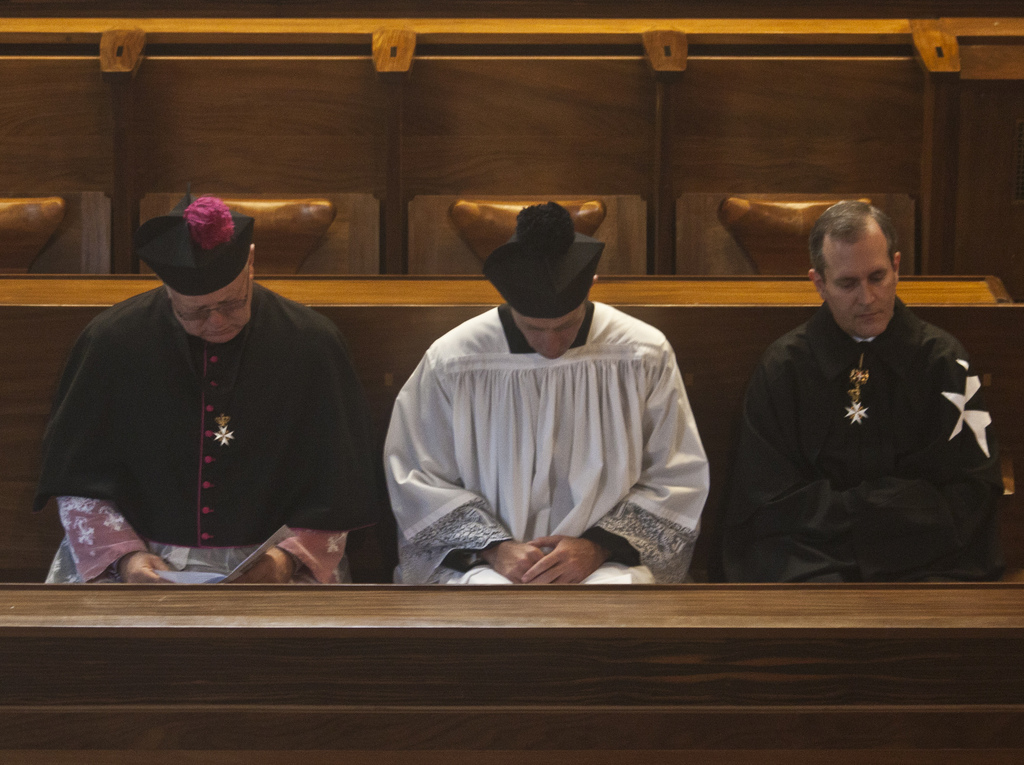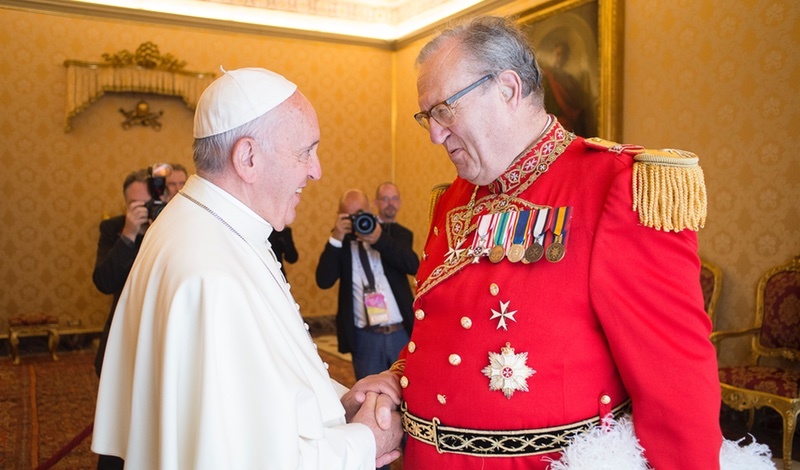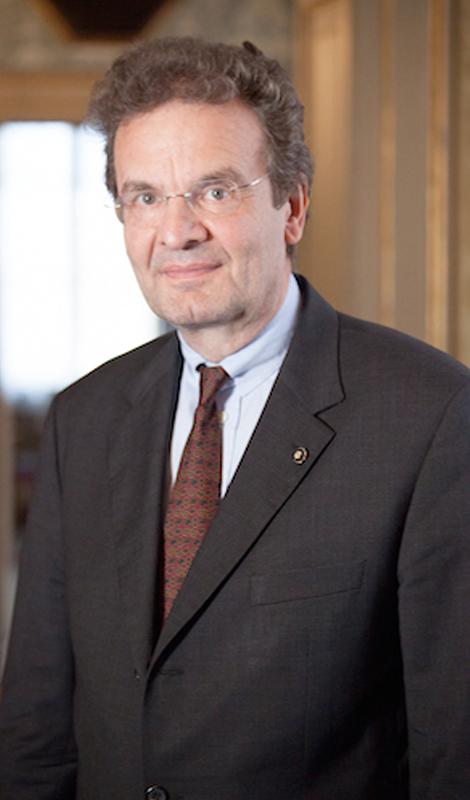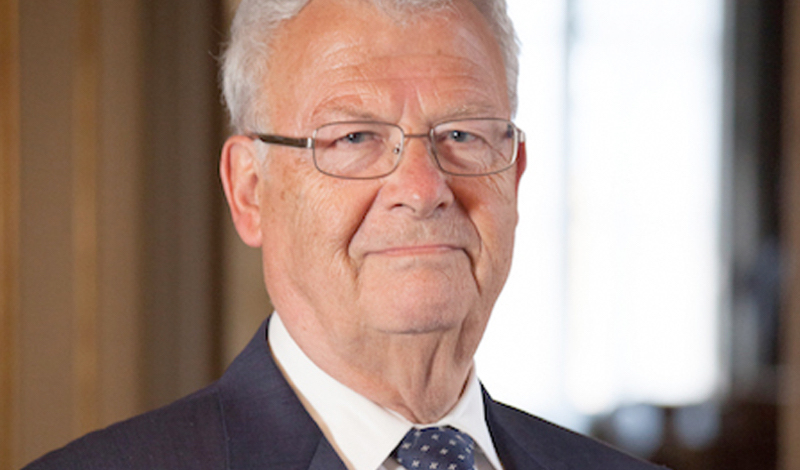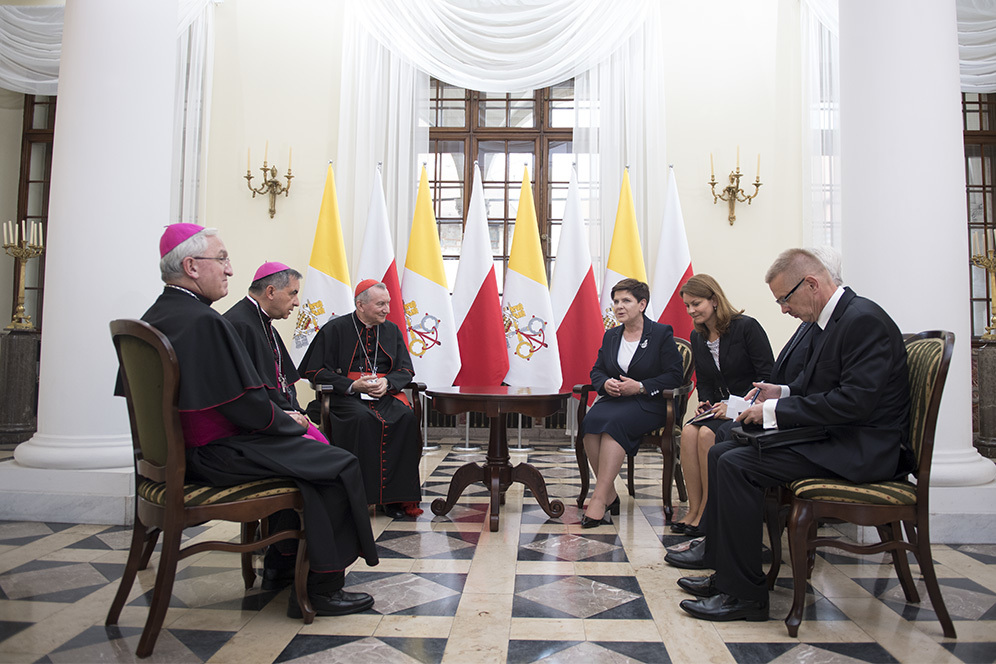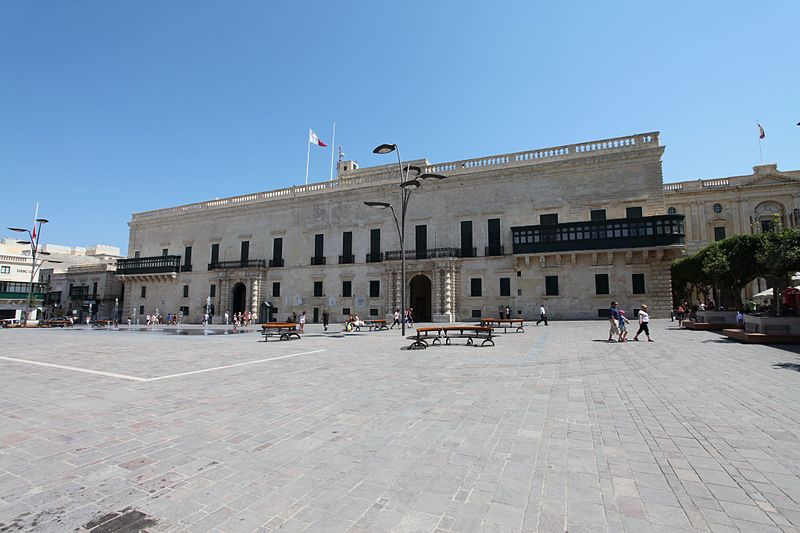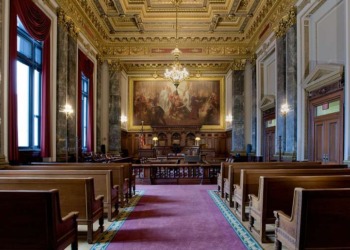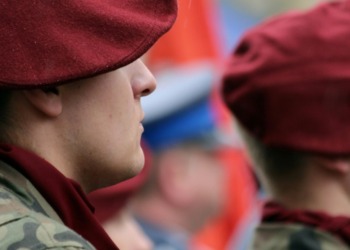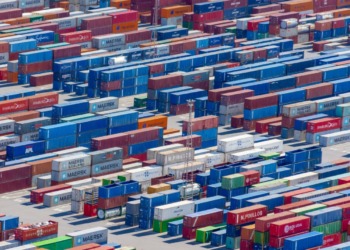The media has recently reported some eye-popping news about the Pope and the Order of Malta allegedly engaged in a power struggle, with the Grand Master of the Order losing the battle and “forced” to resign.
What we have here is the kind of spectacle the media relishes: On one side, the Pope is depicted as the “anti-Trump Pope” for example, see the New Yorker’s article written by James Carroll, an American Catholic reformer and author of eleven novels and eight works of non-fiction, clearly in search of his next plot. On the other side, the Order of Malta, a millenarian Catholic institution with a global, humanitarian mandate, is presented as helplessly in the grips of Cardinal Edmund Burke, a well-known hardliner. An American, Cardinal Burke is adamant about fighting Islam and he is a darling of the populists. So what do you get? A juicy alt-right picture of a clash between a supposedly rigidly conservative Order and a progressive Pope.
In the Photo: Pope receives Grand Master in audience, in earlier better days (June 2016) Photo Credit: Order of Malta website
To make it more credible, the Order is reported by some as an out-of-step relic of the Catholic Church, with its members parading around in “nutcracker” red uniforms. Instead, it is, historically, the oldest existing humanitarian organization. It started out nine hundred years ago to assist pilgrims in Jerusalem. Today, its mandate has broadened to cover children, the homeless, handicapped, refugees, elders, terminally ill and lepers around the world without distinction of ethnicity or religion.
In the Photo: Upholding human dignity and caring for people in need. Photo Credit: Order of Malta website
The Order deploys 120,000 people, some 13,500 Knights, Dames and auxiliary members, 25,000 paid medical personnel and 80,000 volunteers. With its world-wide relief agency, Malteser International, it provides emergency aid in natural disasters, epidemics and war.
The Order is not just another charitable organization: it maintains diplomatic relations with 106 countries, the European Union and the United Nations (the latter as permanent observer), thus effectively linking diplomacy with aid. In short, it has a status similar to that of a government-in-exile, having surrendered its territory – the island of Malta – to Napoleon in 1798 and never recovered it, in spite of a resolution of the 1802 Amiens Treaty and the 1815 Congress of Vienna (it was never applied, the English refused to give it back).
In fact, in this complicated story which we can only glean through partial and even fake news (!), the American Cardinal seems to play a key role. And, as I show below, this is not, contrary to stories in the press, a clash between the Pope and the Order of Malta: They are, and never stopped being together on the same side of human values.
The Order’s Government Crisis, the First in our Time
On 6 December 2016, the unthinkable happened: The Prince and Grand Master, Frà Robert Matthew Festing, the third Englishman to serve as Grand Master, suspended the Grand Chancellor, Albrecht Freiherr von Boeselager, a German national and moved to expel him from the Order. The Grand Chancellor, who had been faithfully serving the Order for 40 years (since 1976), immediately denied all allegations of wrong-doing, refused to resign or leave the Order and reportedly contacted Cardinal Parolin, close to the Pope, to obtain guidance.
In the Photo: Grand Chancellor of the Order of Malta, Albrecht Freiherr von Boeselager Photo Credit: Order of Malta website
Exactly what happened next, we will probably never know (something journalists hate, they always want to dig down to the last detail). But we do have the main facts: The Pope set up a five-member investigative commission and their report eventually led to a Papal decision, calling on 24 January 2017 for the resignation of the Grand Master and the reinstatement of Albrecht von Boeselager as Grand Chancellor. On 28 January, the Order’s Sovereign Council accepted the Grand Master resignation and re-appointed Boeselager as Grand Chancellor.
Contrary to what was reported in the press (for example, see here), the Order is not going to be run by a Papal delegate. Instead, as foreseen in its constitutional Chart, the Sovereign Council appointed Fra’ Ludwig Hoffmann von Rumerstein as Lieutenant ad interim to run the Order until the complete Council is convened to elect a new Grand Master, a procedure that has to be completed within three months of the date of the Grand Master’s resignation.
In the Photo: Fra’ Ludwig Hoffmann von Rumerstein as Lieutenant ad interim and Grand Commander Photo Credit: Order of Malta website
To be clear: there was no take-over of the Order of Malta by the Pope. This situation, contrary to what was said in the press, is not anything like that of the Jesuit Order in 1983 that was placed under the guidance of a papal delegate: The Order is sovereign and its sovereignty remains intact. The resignation of a Grand Master is indeed a highly unusual event but it is one that can be handled under the normal governance rules of the Order. In fact, Frà Festing is not the first Grand Master who has resigned, there have been several before him.
At a special one hour-and-15 minutes press conference held in Rome on 2 February with the Order’s highest authorities, the Grand Chancellor Boeselager, (Minister for Foreign Affairs and Minister of the Interior); the Grand Hospitaller (Minister for Humanitarian Affairs & International Cooperation) and Receiver of the Common Treasure (Minister of Finance) – some further facts came out: A new Grand Master would be designated not by the Pope as erroneously reported in the press, but by the Sovereign Council of the Order, convened in its entirety, within the next three months, probably in April.
It was also reported that the Pope, in a letter to the Order, announced that he would send a “special delegate” to the Order. He didn’t specify what precise function the “special delegate” would have or whether he was removing or perhaps sidelining Cardinal Burke from his position as Patron Cardinal of the Order. No journalist present at the conference asked about Cardinal Burke but no doubt Boeselager would have replied with: “ask the Pope”.
In the event, there was no need. Four days later, what the Pope had in mind came out in the press: on 4 February, he appointed as his special delegate Archbishop Giovanni Becciu, substitute of the Secretariat of State, specifying that he was to oversee the “spiritual and moral renewal” of the Order of Malta, working in cooperation with the Order’s Lieutenant ad interim, with particular attention to the “professed members” (of which there are only 55 worldwide; these are the ones who have taken the “full vows”, i.e. of chastity, poverty and obedience). In addition, they would be expected to develop together “a study in view of the appropriate spiritual renovation” of the Order’s Constitution. Becciu’s mandate ends when a new Grand Master is elected. Note the emphasis on spiritual – nothing to do with the Order’s governance.
This in effect, sidelines Cardinal Burke.
Whether he is sidelined for good remains to be seen. Frà Festing reportedly told The Tablet on 3 February that the “drama is not finished”, implying there was a legal way for him to make a comeback as Grand Master. A loser’s regrets? It is too early to tell whether such statements will translate into facts, but there is no doubt the Order, with the election of a new Grand Master in short order, is on its way to putting the crisis behind.
In the Photo: Archbishop Giovanni Becciu (second from left), substitute of the Secretariat of State, speaks with the Prime Minister of Law and Justice Deputy with the Polish authorities in Krakow, Poland. Photo Credit: Flickr/Światowe Dni Młodzieży
The Swirling of Rumors and Fake News
What exact role did Cardinal Burke play in the events that rocked the Order between December 2016 and January 2017? Hard to say. At the press conference, questions to try to clarify his role remained (diplomatically) without answers. The only impression one gets from watching the video is that the Grand Master was probably ill-advised, though who was involved in this bad advice is not mentioned.
Most of the rumors that swirled about are without foundation and can be merely considered as indicators of the seriousness of the struggle that shook the Order. Unnamed sources reported that Cardinal Burke tried to persuade the Grand Master to fight the Pope, but there is no proof that he did. Or again, it was alleged the investigative commission was biased because it was “packed” with Boeselager’s friends. Did the Grand Master or Cardinal Burke ever believe this? The Grand Master reportedly refused to cooperate with the commission. Yet, the fact that three of the five members of the commission were Knights of the Order would only seem normal, indeed, a sensible choice since the commission was tasked with investigating a matter concerning the Order.
Or take another piece of gossip: it was said that Boeselager’s brother had been nominated to the Vatican bank, the IOR, implying who knew what secret arrangements while, again, this is an irrelevant fact since his brother had been nominated well before the events and had come to that position on the strength of his own personal banking experience – nothing to do with the Order of Malta.
Or the matter of the financial donation of 120 million Swiss Francs, put in a trusteeship in Geneva. Again, donations to the Order are normal, for the past nine centuries they have been the lifeblood of the Order, supporting its humanitarian work. And as explained at the 2 February press conference, in order to maintain the trust of donors, the Order has to adhere to strict transparency rules regarding the source and purpose of the donation: if neither can be clarified, a donation is rejected. Was that particular donation rejected? And what was the link with this crisis, aside from unfounded rumors that the Grand Master wanted the donation moved out of Geneva and placed directly under the Order’s management? We shall never know.
Perhaps the most damaging of the lot was the so-called “condom row”. It started with the US-based Lepanto Institute, a conservative Catholic watchdog. Emboldened by the news of Boeselager’s removal, Lepanto published a report and video with the declared intention of “supporting” Cardinal Burke and the Grand Master’s decision to fire his Grand Chancellor: the report purported to “uncover” a long-time collaboration (dating back to 2005) between the Order of Malta and the United Nations that had supposedly led the Order to “repeatedly” distribute condoms and engage in family planning and “birth spacing”. And it pointed the finger at the Grand Chancellor, saying all this had happened under his watch when he was running Malterser International, the international relief corps of the Order. Yet it neglected to highlight the fact that such measures were (1) not initiated by the Order but by UNAIDS with whom it was cooperating and (2) were designed to fight AIDS, a devastating medical condition in certain areas of the globe putting women and men at high risk. And a concern for the preservation of human health has always been central to the Order’s humanitarian activities.
Later, at the February 2 conference with the press, Boeselager had to defend himself once again, saying that he was, in his position, far removed from daily realities in the field, but that as soon as he had learned of the condom distribution, he had immediately stopped it in two projects and put a third one on hold.
Cardinal Raymond Burke, A Catholic Fundamentalist
The drama is over, a new Grand Master will be elected in April, but what about Cardinal Burke? What will the Pope’s so-called “special delegate” actually do? At the 2 February press conference, it was the last open question, and the appointment of Archbishop Becciu tasked with “spiritual renewal” of the Order (until a new Grand Master is elected) signals an entirely different problem that has nothing to do with the Order of Malta and everything to do with major power shifts within the Church: the Pope is re-aligning the Curia (the Vatican’s government) and restructuring the Vatican bureaucracy, of necessity a long drawn-out battle.
Photo: Picture of Cardinal Burke taken in 2008 Photo Credit:Geerlingguy at English Wikipedia – Transferred from en.wikipedia to Commons by ShinePhantom using CommonsHelper., CC BY-SA 3.0
Consider Cardinal Burke’s profile
In 2014, the Pope had removed him from his high-level Vatican position as Cardinal Prefect of the Supreme Tribunal of the Apostolic Signatura, the highest judicial court in the Catholic Church, and appointed him to the Order of Malta as Patron Cardinal (something of a demotion). A largely ceremonial position, the Order’s Patron Cardinal is meant to provide spiritual guidance, but he is not allowed to interfere in the governance of the Order: The constitutional Charter of the Order is unequivocal on that point, internal affairs are governed by the Order’s Supreme Council, not the Vatican.
However, once installed as the Patron Cardinal of the Order, Cardinal Burke didn’t stop his political activism. In 2015, French journalist Guillaume d’Alançon collected his interviews with Cardinal Burke in a book called “Un Cardinal au Coeur de l’Eglise: Entretiens”. In July 2016, it was published in English with the title Hope for the World: To Unite All Things in Christ, giving voice to the Cardinal’s views, in particular his resistance to all progressive ideas.
By September 2016, along with three other cardinals, he had sent the Pope a “dubia”, a series of questions attacking certain aspects of the Pope’s Amoris Laetitia, asking for “clarification” in relation, inter alia, to the possibility that divorced persons might be allowed to take communion – questions to which, so far, the Pope has chosen not to reply (which is his prerogative). He has however, removed him from the Congregation for Divine Worship (as of November 2016).
The Cardinal has continued his political activities, first meeting with Stephen K. Bannon when he was still head of Breitbart News (according to the New York Times’ piece “Steve Bannon Carries Battles to Another Influential Hub: The Vatican“) and sharing views. Most recently he met in Rome with the nationalist-populist Salvini, the head of the Northern League, and has shared with him a heartfelt salute to Trump’s victory, and presumably, supporting Salvini’s manifest desire to take down the European Union and the political establishment. On February 4, anti-Pope Francis posters were plastered across Rome with a message in “romanaccio” (the popular language in Rome) highlighting the “decapitation” of the Order of Malta by the Pope. The Cardinal may have had nothing to do with this, but his friends did and Bannon’s Breitbart News gleefully reported it.
In fact, Cardinal Burke has been featured several times on Breitbart News and shared there his stark views on Islam that portrays all Muslims as jihadists:
“It is clear that Muslims have as their ultimate goal conquest and power over the world. Islam, through sharia, their law, will rule the world and permit violence against infidels, such as Christians. But we find it hard to recognize this reality and to respond by defending the Christian faith. Many people do not understand what Islam really is. They create these slogans: we all believe in the same God, we are all united by love and so on. It’s not true.”
And, he argued, it is the fault of the West that is too weak to react:
“Several times I have heard Islamists explaining: ‘What we failed to do with weapons in the past, we are doing today with birth rate and immigration.’ The population is changing. If this keeps up, in countries like Italy, the majority will be Muslim. All this happens through the corruption of the West. There are not enough families. We supinely accept practices that are contrary to the natural law, such as abortion or so-called “marriage” between persons of the same sex. It is proof that we are not strong enough in faith, and easy prey for conquest.”
Such positions are at variance with not only this Pope’s position on relations with Islam and other religions but also that of his predecessors, starting in 1986 with Pope John Paul II famous inter-faith summit in Assisi. And such positions are also in total contrast with the Order of Malta’s, as clearly re-iterated by the Grand Chancellor at the press conference:
“We are alarmed and concerned by the proliferation of discriminatory positions towards immigrants, not least, based on their national origin. History has already provided us with plenty of examples showing the dramatic and monstrous consequences of policies based on origin and race. Likewise, the [Order] takes a strong stance against the increasing disregard for the humanitarian laws encoded in the Geneva Conventions ratified by the family of nations.
Not only are the norms being increasingly ignored by State and non-State actors, but they are being publicly challenged and disputed. As an observer to the UN and other multilateral entities, we will continue to raise our voice in the context.”
Cardinal Burke – and President Trump – you are given notice, the Geneva Conventions matter, Christian compassion is not an optional.
In the Photo: Grand Master Palace in Valletta, Island of Malta, used from 1571 to 1798 Photo: WikimediaCommons/ Sudika – Own work, CC BY-SA 3.0
Recommended reading: “ONE FOR ALL – PRESIDENT DONALD TRUMP?”


